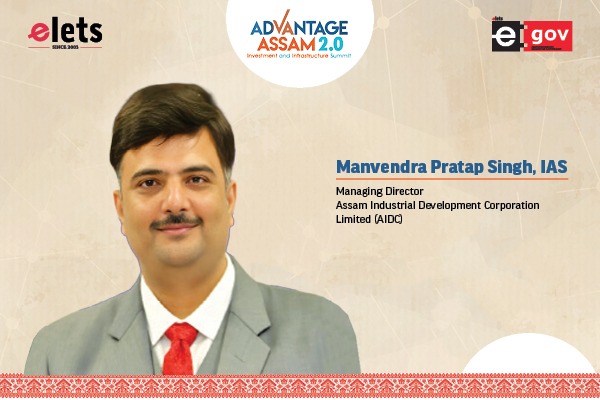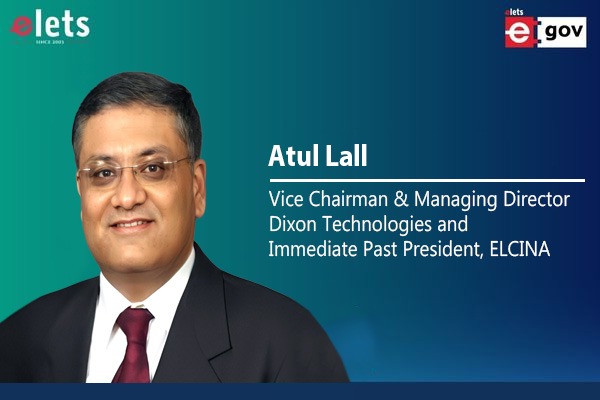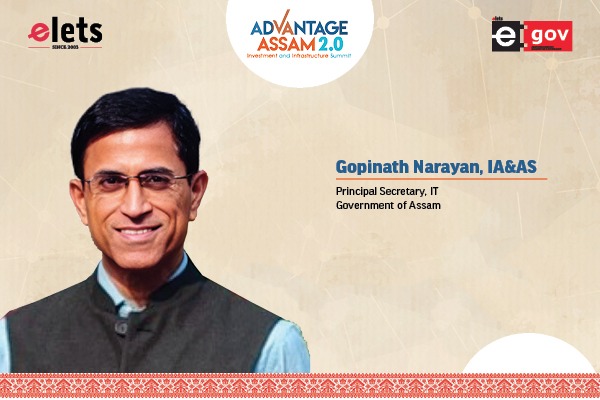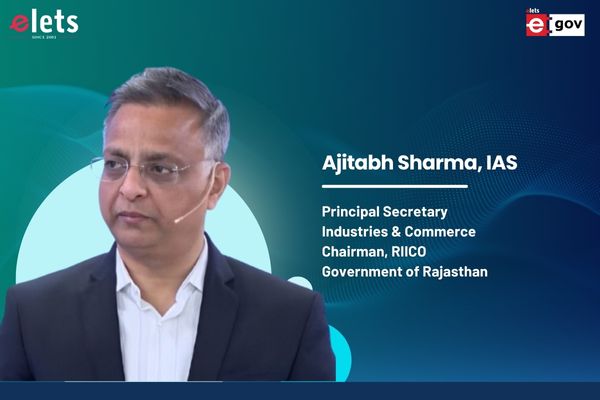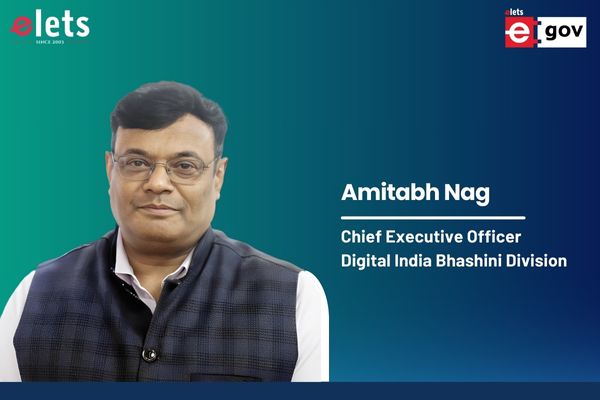
As a part of technology adaptability, BWSSB has introduced the AI technology for borewells on pilot basis to monitor the under ground water level and quantum of water extraction, this results in optimization of water extraction and failure of submersible pumps, shared Dr. Ram Prasath Manohar, IAS, Chairman, Bangalore Water Supply & Sewerage Board (BWSSB), in an exclusive interaction with Krishna Mishra of Elets News Network (ENN).
How is Bangalore Water Supply & Sanitation Board (BWSSB) leveraging emerging technologies like AI, IoT, and cloud computing to improve water resource management and service delivery?

BWSSB has the bulk flow meters ranging from 100 mm dia to 1200mm dia which are integrated with the SCADA system to obtain the flow details of DMA/inlet & outlet of sub divisions, enabling the equitable distribution in the water supply network with accountability.

The Wastewater Treatment Plants installed & operating have also integrated to the SCADA, wherein the inlet, outlet parameters, sewage flow details are regularly being monitored and the same is interfaced with the KSPCB central server.

Under JICA funded Cauvery V stage project, CP-24 is included which basically focus on SCADA implementation for the components of the Water treatment and distribution network to provide efficient management of the water treatment & distribution network. This ensures a fully integrated water network management solution with water quality parameters monitoring at all GLRs within Bangalore city area and key locations in the water distribution network. This includes flow and pressure monitoring at key locations in the water distribution network. This will provide BWSSB with a virtual model that shall utilize the operational data to run simulations and benchmark performance using the SCADA software and the Water demand & forecasting module of the SCADA software & water loss information, allowing BWSSB operators to pinpoint where efficiency gains can be made in the distribution network.

As a part of technology adaptability, BWSSB has introduced AI technology for borewells on pilot basis to monitor the under ground water level and quantum of water extraction, this results in optimization of water extraction and failure of Submersible pumps.
Tell us some of your key projects where BWSSB has implemented intelligent systems for monitoring supply networks, demand forecasting, leakage detection, etc.?
As discussed above, BWSSB is having a well established SCADA system both in water supply and wastewater sector to monitor the related parameters.
BWSSB has implemented the IoT in the following fields:
- Sajala- Web based billing application
- Online Water Connection
- Centralized SCADA Monitoring Centre
- Complaint Management System
- Website
- Real Time Online Water Quality Monitoring Station
- Vehicle Tracking System
- Water Information Hub
- Geographic Information System for the entire 800 sq.km area.
How successful have these implementations been in optimizing operations and maintenance? What benefits have been realized in terms of cost savings and efficiency?
The data available from the SCADA helps to assess the flow details of DMA/inlet & outlet of sub divisions, enabling the equitable distribution in the water supply network with accountability in water supply, thus setting the benchmark and efficient utilization of the resources. This also helps in reduction of NRW, thus increasing the overall revenue of BWSSB.
In the wastewater sector, the entire inflow & outflow parameters with flow details are available, helping to reach the guidelines set by the CPCB/KSPCB discharge Norms.
The SCADA has enabled the officers in the Management level to monitor the entire water supply & waste water system on a real time basis, thus improvising/ optimizing the O&M of the system by increasing the efficiency and equal distribution.
What challenges exist currently in fully digitizing BWSSB processes and infrastructure? How is the organization overcoming these challenges?
As BWSSB is a non profitable organization, arranging funds ‘in house’ for such huge projects with high ‘Implementation cost’ is a challenging job.
Presently, the available SCADA in the water supply network is to monitor the system as per the normal practice. The introduction of AI or IoT for complete systems requires upgradation of the existing old system like replacement of old pipelines, mechanically operated valves. But, due to financial constraints the replacement of existing utilities for the future requires upgradation involving huge capital cost, limiting to ignite transformation in water supply & sanitation utilities.
Spite of the above, BWSSB is going ahead with arranging funds through external funding agencies.
Empowering the utility staff with knowledge enhancement programs, regular HRD training, International and national level utility interaction, arranging international conferences/works to ensure knowledge of staff.
What policies and frameworks need to be implemented at the state level to promote responsible innovation in the water sector through technology?
- Funding/Financial assistance- Financing is the major source for implementing the innovative technology, the financial assistance in the form grants is essential, involvement of private sector investment and others need to be explored. Regulatory support from the GoK assuring annual tariff hike inline with BESCOM charges revision.
- Recruitment of staff- For running a healthy institution, the monitoring at each level is essential. Thus the staff strengthening is required in line with the increase in BWSSB jurisdiction.
- Public Participation & Awareness- PPP model project to implement advanced technologies in the field of water supply & waste water treatment to enhance the efficiency and reduce the financial burden on BWSSB.
Also Read | AI Ensuring Fair and Bias-Free Tax Assessments
What steps is BWSSB taking to upskill its workforce to collaborate with technology companies and ensure the benefits of digital transformation?
As BWSSB is approaching the external agencies for funding like JICA, World Bank, ADB etc., these agencies helps in knowledge transfer and adoption of new technologies with AI & IoT based.
Introduction of Smart metering to increase the metering efficiency & revenue.
However, the SCADA operated maintenance system requires smart meters, & smart valves in the entire network system.
Be a part of Elets Collaborative Initiatives. Join Us for Upcoming Events and explore business opportunities. Like us on Facebook , connect with us on LinkedIn and follow us on Twitter, Instagram.
"Exciting news! Elets technomedia is now on WhatsApp Channels Subscribe today by clicking the link and stay updated with the latest insights!" Click here!




